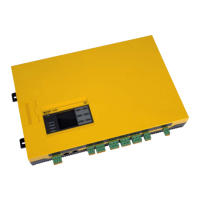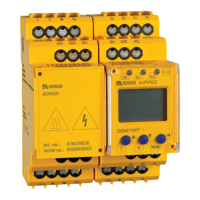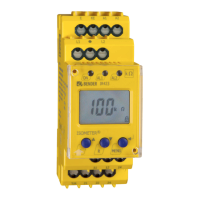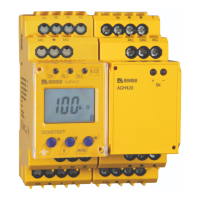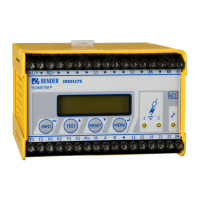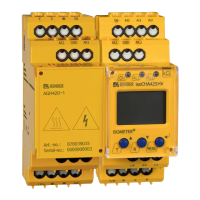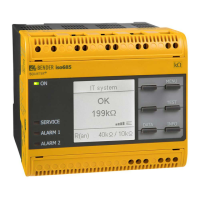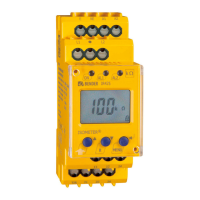Device communication
68
isoxx1685Dx-x25_D00272_07_M_XXEN/09.2022
9.1.2 BMS protocol
This protocol is an essential part of the Bender measuring device interface (BMS bus protocol).
Data transmission generally makes use of ASCII characters.
Interface data are:
• Baud rate: 9600 baud
• Transmission: 1 start bit, 7 data bits, 1 parity bit, 1 stop bit (1, 7, E, 1)
• Parity: even
• Checksum: Sum of all transmitted bytes = 0 (without CR and LF)
The BMS bus protocol works according to the master-slave principle. Only one master may
exist in each network. All bus devices are identified by a unique BMS address. The master cyc-
lically scans all other slaves on the bus, waits for their response and then carries out the corre-
sponding commands.
A device receives the master function by assigning bus address 1 to it.
9.1.3 BMS master
A master can query all measured values, alarm and operating messages from a slave. If bus
address 1 is assigned to a device, this device automatically operates as master, i.e. all addresses
between 1 and 150 are cyclically scanned for alarm and operating messages via the BMS bus.
If the master detects incorrect answers from a slave, the fault message "Fault RS-485" will be
output via the BMS bus.
The following fault causes may exist:
• Addresses are assigned twice
• A second master exists on the BMS bus
• Interference signals occur on the bus lines
• A defective device is connected to the bus
• Terminating resistors are not activated or connected
9.1.4 Commissioning of an RS-485 network with BMS protocol
• Interconnect terminals A and B of all bus devices in one line.
• Switch the terminating resistors on at the start and the end of the RS-485 network. If a
device at the end of the bus is not terminated, connect a 120 resistor to terminals A
and B.
• Switch the supply voltage on.
• Assign the master function and address 1 to a bus-capable device.
• Assign addresses (2...90) to all other bus devices in consecutive order.
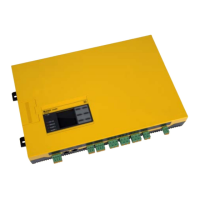
